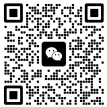Won with they words, & conquered with thy looks,
I yield my selfe, my men & horse to thee (350-52, 419, 423-4)
Liberation is here figured as one of two choices: to reject the divine or to take it over. In Tamburlaine's case, he alternatively threatens heaven and dares the gods, or claims identity with the divine to sanction his violence: 'til by vision, or by speech I heare / Immortall Ioue say, Cease my Tamburlaine, / I will persist a terrour to the world …' (3873-75). Tamburlaine self-aggrandizement is given divine legitimacy: Tamburlaine believes that his tyranny and martial lust are condoned through the gods through their silence.
The two-part Tamburlaine is based on the historical figure of Timur, a bloody conqueror of Asia, whose greed for power and extravagance culminates with his inevitable downfall. Tamburlaine deviates from the tragic norm in his depiction of the tragic hero; Tamburlaine is not humbled by his dramatic fall, and no moral lesson is learned and repentance achieved. Tamburlaine does not conform to the model of the tragic hero set out in Poetics. The tragic hero is fated to make a serious error which will cause his fall and tragic death, usually caused by hubris, or prideful arrogance, but he remains likeable to the audience for his inherent goodness. Tamburlaine, in contrast, is a character whose goodness is notably absent.
In contrast the Aristotlean model, in which the tragic hero is noble from birth, Tamburlaine is an obscure Scythian shepherd in the opening of part 1. He quickly ascends through his bravery and his eloquent speech, and his ferocity on the battlefield. Tamburlaine sees himself as the 'scourge of God' and even dreams of leading his armies in war against the divine army in heaven. In a scene in which Tamburlaine has defeated Cosroe, he responds to Cosroe's demands for the reasons behind his treachery.
Nature, that fram'd us of four elements
Warring within our breasts for regiment,
Doth teach us all to have aspiring minds:
Our souls, whose faculties can comprehend
The wondrous architecture of the world,
And measure every wandering planet's course,
Still climbing after knowledge infinite,
And always moving as the restless spheres,
Wills us to wear ourselves and never rest,
Until we reach the ripest fruit of all,
That perfect bliss and sole felicity,
The sweet fruition of an earthly crown. (I.iv. 13-29)
With this final line Tamburlaine snatches the crown from dying Cosroe's head and places it on his own head, assuming the power of divine legitimacy for himself. Reordering the humours as in constant opposition, rather than harmonious order, is to legitimize his own militaristic behaviour as part of the 'natural' world. He is, in essence, creating himself out of nothing, as he became an emperor from a shepherd, and as such is taking over the divine role of creation. In doing so, he upsets the authority of the moral order, and even his death does not resolve the moral hierarchy.





